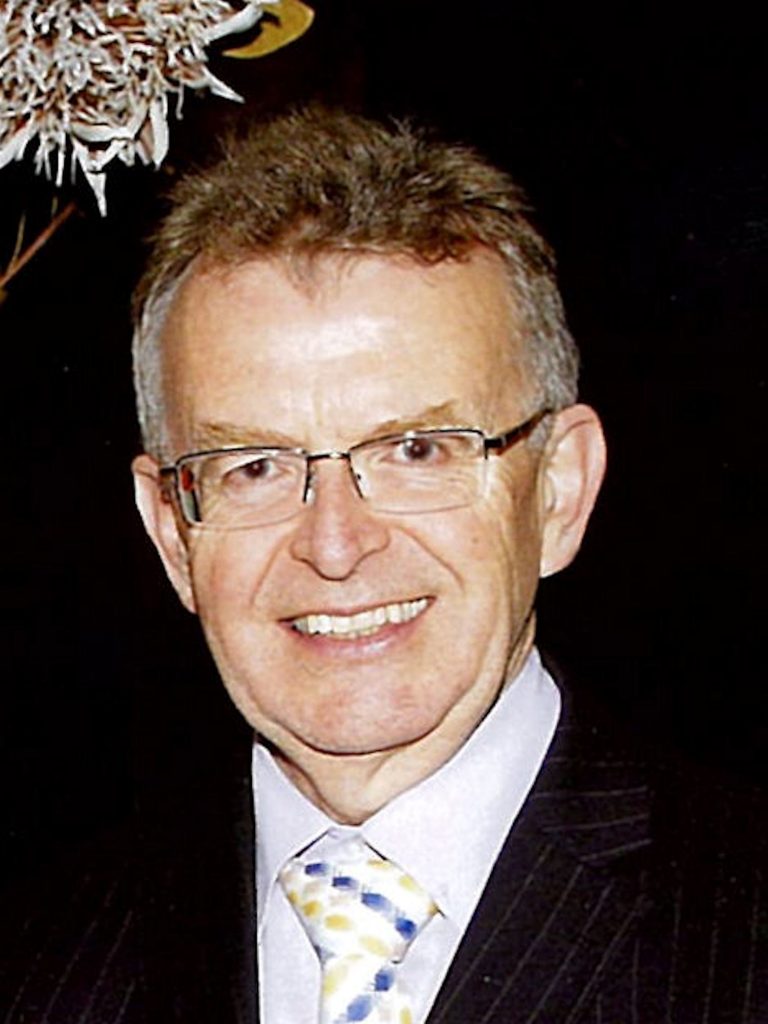 Greg Adamson, 2015-2016 SSIT President
Greg Adamson, 2015-2016 SSIT President “Can we program ethics into Artificial Intelligence?” was the topic of a keynote panel initiated by SSIT at the July IEEE Conference on Norbert Wiener in the 21st Century. Participants included Juerg von Kaenel from IBM, Judy Wajcman from the London School of Economics, James Hughes from the Institute for Ethics and Emerging Technologies, Thao Phan from the University of Melbourne, and Marcus Wigan from Imperial College London. The session was chaired by T&S Magazine editor Katina Michael.
Discussion was lively. Some serious interdisciplinary understanding emerged as technologists and social scientists exchanged views. About the only point of complete agreement was that the question oversimplified the challenge. In the end the largest gulf existed between two different sociological perspectives on the future: whether we are more or less secure in an automated world.
SSIT has been looking at questions like this for more than four decades, in an often lonely journey. Today is different. Many technologists are becoming intrigued by questions like, “Would I be willing for my self-driving car to drive me off a cliff if it meant saving a bus load of children?” Technology has caught up. The theoretical questions have become real.
In a sense they always were. Recently VW agreed to pay a record$15 billion partial settlement for designing mechanisms that circumvented pollution tests. No doubt some companies have chosen to break laws for as long as companies and regulations have existed. But today the growing centrality of technology in our lives is propelling these cases to the fore. Multi-billion fines will drive different behaviors, and raise the status of professional codes of ethics.
SSIT has many members who are expert researchers and practitioners in this field of ethics. You can follow the history of ethics in IEEE in a great resource assembled by long-time SSIT member Walter Elden, at http://ethw.org/IEEE_Ethics_History_Repository_(IEHR).
Today SSIT’s ethics expertise is being sought across IEEE. As an organization IEEE is seeking to engage actively in the fields of ethics and policy related to technology. SSIT is now invited to be part of each new initiative of the Future Directions Committee (e.g., the IoT Initiative, the Brain Initiative, the Big Data Initiative,) and we have been able to find suitably qualified experts for most of these. Technical Activities, home to IEEE’s 46 Technical Societies and Councils, has established the Ethics, Society, and Technology initiative in which we are playing an important part. We will be assisting an ethics discussion at the Sections Congress in Sydney in August 2017, the three-yearly meeting of all IEEE Sections.
If you are an ethics researcher or practitioner, or if you are looking at your next career transition and want to retrain yourself in this field, now is the time to get involved in SSIT’s ethics activities. Write to me and I will connect you with the relevant SSIT opportunity.
Author
Greg Adamson, 2015–16 IEEE-SSIT President, is with the Melbourne School of Engineering, University of Melbourne, Australia. Email: g.adamson@ieee.org.






 JOIN SSIT
JOIN SSIT